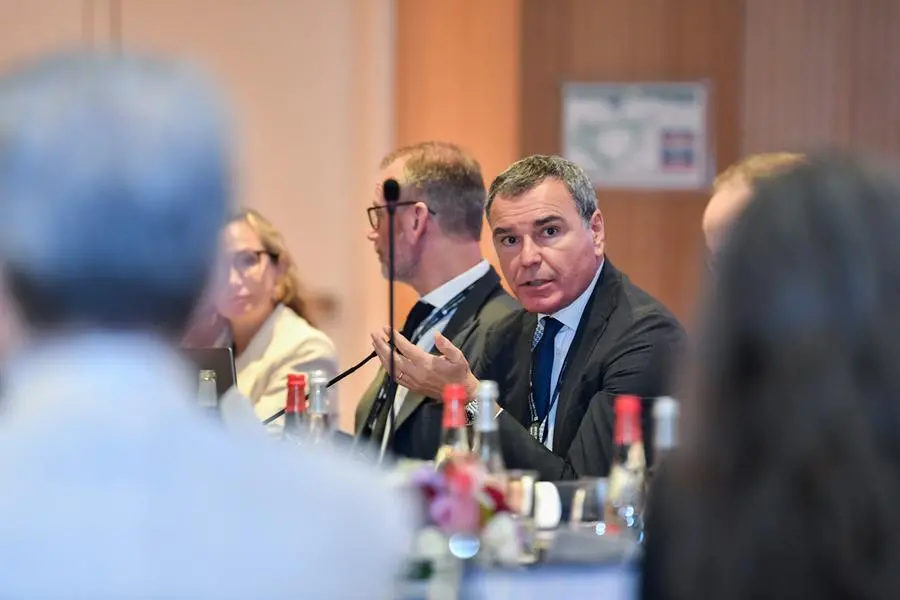PHOTO
- Sovereign Wealth Funds investment value reported a 50 percent increase in 2023 driven by large investments in clean energy projects
- In contrast, global net inflows into ESG funds have been shrinking since 2021 and entered negative territory in Q4 2023
Abu Dhabi, UAE: Stern at NYUAD’s Transition Investment Lab (TIL) third annual report has revealed that the financial gap in the Middle East, Africa, and Southern Asia (MEASA) region needed to meet the UN’s Sustainable Development Goals (SDGs) by 2030 has expanded to nearly USD five trillion annually; a rise on last year’s figure of USD 4.3 trillion. It cites the convergence of economic, environmental, and geopolitical challenges – often referred to as a “polycrisis” – as a key contributing factor. However, the report also finds multiple ways that UAE and global institutional investors can use ‘transition investment,’ a philosophy aimed at achieving socio-economic impact along with financial returns, to reduce this gap, capitalizing on their unique access to emerging markets.
In partnership with Mubadala and MEASA Partners, The Great Reallocation: Mobilizing Capital for Transition Investment, which launched at The Transition Investment Workshop at NYUAD, argues that with the UAE’s access to emerging markets in the MEASA, the region is uniquely positioned to channel investment and offer transformative growth opportunities. The report also shows how the MEASA has the highest economic growth potential, while also facing the most severe socioeconomic and environmental challenges.
“There is a burgeoning investable universe that offers the opportunity for investors to make progress on the SDGs while generating-positive risk-adjusted returns. The report explores these areas and how transition investment can allow investors to preserve the sustainability agenda amid the current geopolitical disruptions. We are sharing these ideas with the movers and shakers of the local and regional ecosystem, as we believe that the region has an immense, untapped potential to mobilize capital and make waves in capital mobilization along the SDGs ,” said Bernardo Bortolotti Executive Director of the Transition Investment Lab.
Significant progress in key areas, like poverty reduction and access to education, stalled due to recent global disruptions. Since 2021, global net inflows into ESG funds inflows have shrunk and entered negative territory in Q4 2023, reflecting growing investor skepticism. Private markets showcase a similar trend, with an 18 percent decline in ESG-aligned funds managed across sectors like private equity, infrastructure, and real estate.
As a result, the financial gap needed to meet the SDGs by 2030 has expanded to nearly USD five trillion annually. Amid the slowed momentum, net flows to ESG funds have started to decline with growing skepticism regarding the tangible impacts of such investments.
Antonio Miguel Ribeiro, Head of Investment Risk, Mubadala said: “We stand at halftime and progress towards more than a third of SDG targets is stagnating or regressing. Transition investing can help reverse this trend and enable private market investors to seize attractive investment opportunities in MEASA.”
Peter Lejre, SEO MEASA Partners commented: “We firmly believe that the population and economic growth of the MEASA region provides for compelling financial risk-adjusted investment opportunities. However, the current underweight investment allocation to the region could easily result in significant social and environmental risks that will have global consequences. Accordingly, we see the need to find new ways to attract capital from long-term institutional investors to the region. The work done at TIL is critical to support awareness building about regional opportunities as well as an alternative approach to evaluating impact of investments made.”
The Transition Investment Workshop brought together financial institutions, asset managers, researchers, and policymakers to exchange knowledge and best practices on unlocking large-scale investments in socially impactful projects in emerging and lower-income countries. The event aligns with TIL’s mission to meet the highest academic standards while providing strategic thinking and actionable solutions to investors and to contribute to positioning Abu Dhabi as a global hub for SDG-aligned investments along the priorities and principles of Abu Dhabi Economic Vision 2030.
Established in 2021, Stern at NYUAD’s TIL is a center of excellence and knowledge hub for financial research on sustainable investment in emerging and lower-income economies.
About NYU Abu Dhabi
www.nyuad.nyu.edu
NYU Abu Dhabi is the first comprehensive liberal arts and research campus in the Middle East to be operated abroad by a major American research university. NYU Abu Dhabi has integrated a highly selective program with majors in the sciences, engineering, social sciences, arts, and humanities with a world center for advanced research. Its campus enables students to succeed in an increasingly interdependent world, and to advance cooperation and progress on humanity’s shared challenges. NYU Abu Dhabi’s high-achieving students have come from some 125 countries and speak over 100 languages. Together, NYU's campuses in New York, Abu Dhabi, and Shanghai form the backbone of a unique global university, giving faculty and students opportunities to experience varied learning environments and immersion in other cultures at one or more of the numerous study-abroad sites NYU maintains on six continents.




















